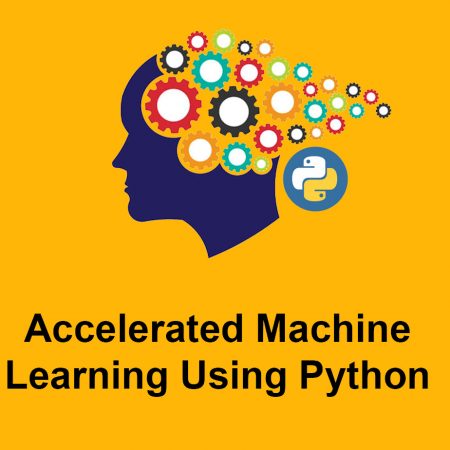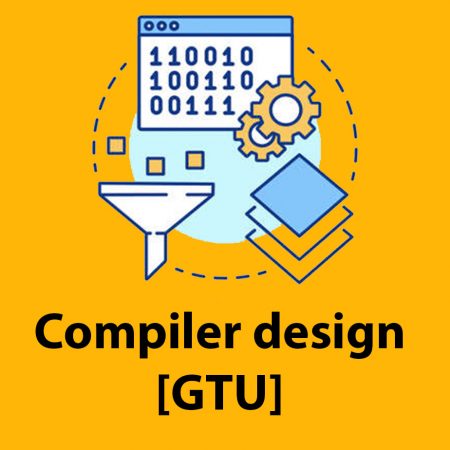MCC (Mobile Communication and Computing)

-
About The Course
-
Description
What you’ll Learn:
● Understand wireless communication networks.
● Being familiar with cellular generations -5G, 4G, 3G and 2G
● Students will learn about frequency reuse, wireless modulation and demodulation. -
Index
- Introduction to Mobile Computing
- Multiplexing
- Frequency reuse concept in cellular system
- GSM architecture
- Privacy and Authentication in GSM
- GPRS Architecture
- 3G UMTS architecture
- Mobile IP and Packet through tunnel working
- IP Address v/s MAC Address
- IPv4 Header Format
- IPv6
- IPv4 vs IPv6
- Wireless LAN Threats and Security
- WiFi Protected Access
- Bluetooth Architecture
- Macro Mobility- MIPv6 and FMIPv6
- Micro Mobility- HAWAII Architecture
- Micro Mobility- HMIPv6 Hierarchical MIPv6
- Cellular IP Standard
- SAE/LTE Architecture Part #1
- SAE/LTE Architecture Part #2
- VoLTE
- Self-Organizing Networks (SON) Framework
- 5G Introduction
- GEO MEO LEO Types of satellite Orbit
- Handover and Types of Handover
- Types of Handoffs and Handover
- Wireless Local Loop
- PSTN Architecture
- Android architecture
- 4G architecture
- IEEE 802.11 Architecture
- IEEE 802.11 Protocol Architecture
- Wifi Security – Wired Equivalent Privacy (WEP)
- HiperLAN Type 1
-
Importance
-
Notes
MCC (Mobile Communication and Computing)
What you’ll Learn in MCC (Mobile Communication & Computing) :
● Understand wireless communication networks.
● Being familiar with cellular generations -5G, 4G, 3G and 2G
● Students will learn about frequency reuse, wireless modulation and demodulation.
Description:
MCC (Mobile Communication & Computing) is semester 7 subject of final year of computer engineering in Mumbai University. Prerequisite for studying this subject are Computer Networks. Course objectives of the subject Mobile Communication & Computing is to introduce the basic concepts and principles in mobile computing. This includes major techniques involved, and networks & systems issues for the design and implementation of mobile computing systems and applications. To explore both theoretical and practical issues of mobile computing. To provide an opportunity for students to understand the key components and technologies involved and to gain hands-on experiences in building mobile applications. Course outcomes of the subject Mobile Communication & Computing On successful completion of course learner will be able to identify basic concepts and principles in mobile communication & computing, cellular architecture. To describe the components and functioning of mobile networking. To classify variety of security techniques in mobile network. To apply the concepts of WLAN for local as well as remote applications. To describe and apply the concepts of mobility management. To describe Long Term Evolution (LTE) architecture and its interfaces. Mobile computing is human computer interaction in which a computer is expected to be transported during normal usage, which allows for the transmission of data, voice, and video. Mobile computing involves mobile communication, mobile hardware, and mobile software. Communication issues include ad hoc networks and infrastructure networks as well as communication properties, protocols, data formats, and concrete technologies. Hardware includes mobile devices or device components. Mobile software deals with the characteristics and requirements of mobile applications.
Module Introduction to Mobile Computing, Telecommunication Generations, Cellular systems consists of the following subtopics Electromagnetic Spectrum, Antenna, Signal Propagation, Signal Characteristics, Multiplexing, Spread Spectrum: DSSS & FHSS. Module GSM Mobile services, System Architecture, Radio interface, Protocols , Localization and Calling, Handover, security (A3,A5 & A8) consists of the following subtopics GPRS system and protocol architecture. UTRAN ,UMTS core network ; Improvements on Core Network. Module Mobile Networking consists of the following subtopics Medium Access Protocol, Internet Protocol and Transport layer consists of the following subtopics Medium Access Control: Motivation for specialized MAC, ,Introduction to multiple Access techniques (MACA) Mobile IP: IP Packet Delivery, Agent Advertisement and Discovery, Registration, Tunneling and Encapsulation, Reverse Tunneling, Routing (DSDV,DSR). Mobile TCP : Traditional TCP, Classical TCP Improvements like Indirect TCP, Snooping TCP & Mobile TCP, Fast Retransmit/ Fast Recovery, Transmission/Timeout Freezing, Selective Retransmission. Module Wireless Local Area Networks consists of the following subtopics Introduction, Infrastructure and ad-hoc network. IEEE 802.11 System architecture, Protocol architecture , Physical layer, Medium access control layer, MAC management, 802.11a, 802.11b. Wi-Fi security : WEP ,WPA, Wireless LAN Threats , Securing Wireless Networks. HiperLAN 1 & HiperLAN ,Bluetooth Introduction, User Scenario, Architecture, protocol stack. Mobility Management : Introduction, IP Mobility, Optimization, IPv6 ,Macro Mobility : MIPv6, FMIPv6, Micro Mobility: CellularIP, HAWAII, HMIPv6.
Module Long-Term Evolution (LTE) of 3GPP consists of the following subtopics LTE System Overview, Evolution from UMTS to LTE. LTE/SAE Requirements, SAE Architecture , EPS: Evolved Packet System, E-UTRAN, Voice over LTE (VoLTE), Introduction to LTE-Advanced, System Aspects, LTE Higher Protocol Layers, LTE MAC layer, LTE PHY Layer,Self Organizing Network (SON-LTE),SON for Heterogeneous Networks (HetNet), Introduction to 5G.
Suggested texts Books for the subject Mobile Communication & Computing by Mumbai university is as follows Jochen Schilller, Mobile Communication, Addision wisely,Pearson Education Wireless Communications & Networks, By William Stallings, Second Edition, Pearson Education ,Raj Kamal, Mobile Computing, 2/e , Oxford University Press-New Delhi. Suggested Reference Books for the subject Mobile Communication & Computing by Mumbai University is as follows LTE Self-Organizing Networks (SON): Network Management Automation for Operational Efficiency, Seppo Hamalainen, Henning Sanneck, Cinzia Sartori, Wiley publications. Christopher Cox, An Introduction to LTE: LTE, LTE-Advanced, SAE and 4G Mobile Communications, Wiley publications Mobility Protocols and Handover Optimization: Design, Evaluation and Application By Ashutosh Dutta, Henning Schulzrinne, IEEE Press, Wiley Publication Michael Gregg, Build your own security lab, Wiley India edition 5 Emerging Wireless Technologies and the Future Mobile Internet, Dipankar Raychaudhuri, Mario Gerla, Cambridge. Andreas F.Molisch, Wireless Communications, Second Edition, Wiley Publications.
Join in, to learn mobile communication fundamentals, equally important from the
academic as well as real-world knowledge.
Modules Covered:
1. Introduction
2. GSM / GPRS protocol architectures
3. Mobile Networking
4. WLAN & IEEE 802.11
5. Mobility Management
6. LTE/ SAE & 5G
Feel forward to have a look at course description and demo videos and we look forward to see you learning with us.
Prepare For Your Placements: https://lastmomenttuitions.com/courses/placement-preparation/
![]()
/ Youtube Channel: https://www.youtube.com/channel/UCGFNZxMqKLsqWERX_N2f08Q
Follow For Latest Updates, Study Tips & More Content!
Course Features
- Lectures 37
- Quizzes 0
- Duration 50 hours
- Skill level All levels
- Language English
- Students 60
- Certificate No
- Assessments Yes



![WhatsApp Image 2020-06-26 at 12.15.44 PM First Year Sem 2 MU NEP [ Comps – IT – AIML Branch ]](https://lastmomenttuitions.com/wp-content/uploads/2020/02/WhatsApp-Image-2020-06-26-at-12.15.44-PM.jpeg)



4 Comments
Will notes be provided to us?
No
bro content english meh hai ya hindi meh aur routing protocol include hai course meh ya nahi ?
content hindi me hai routing protocol index me check karle bro ek bar